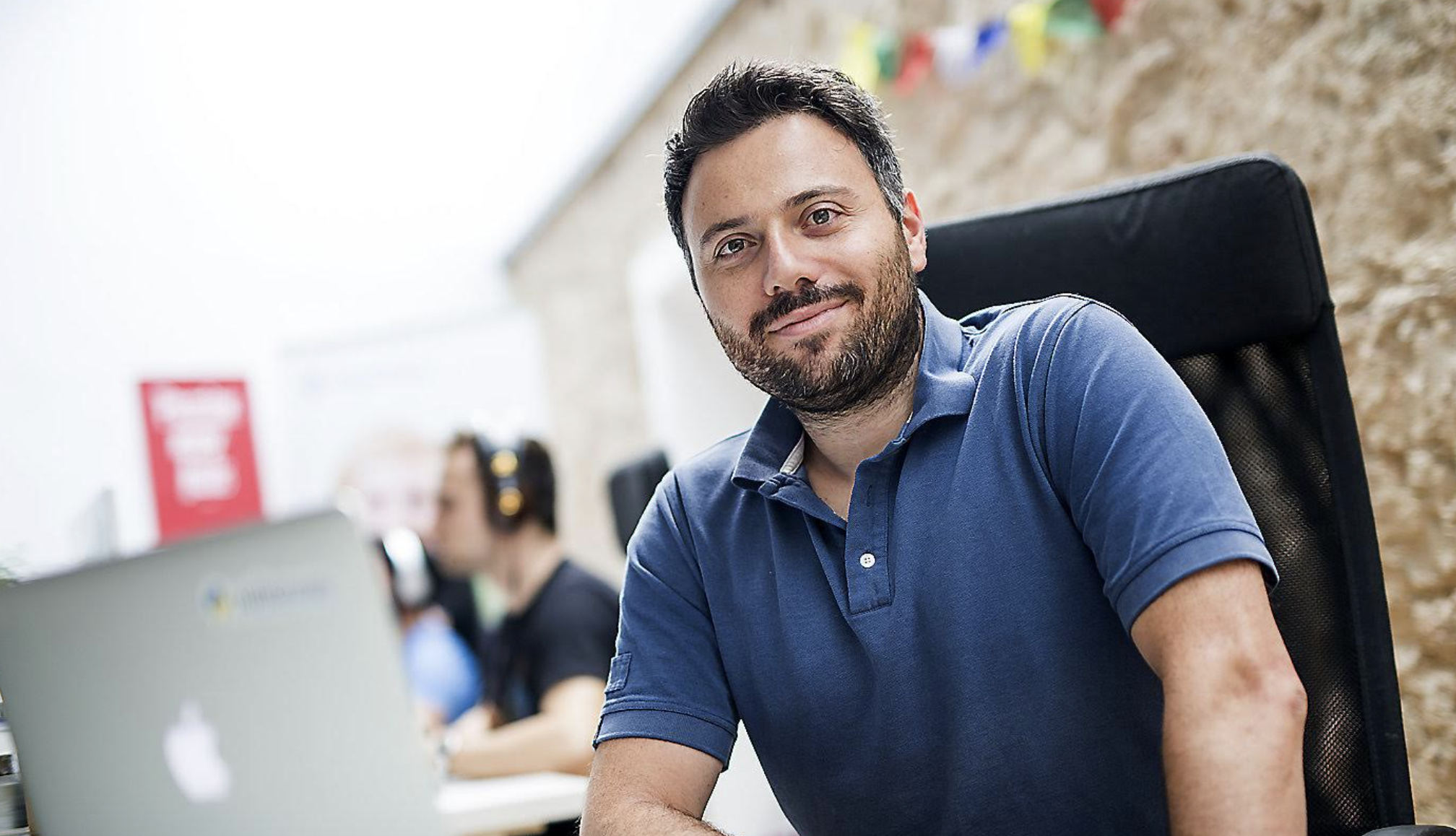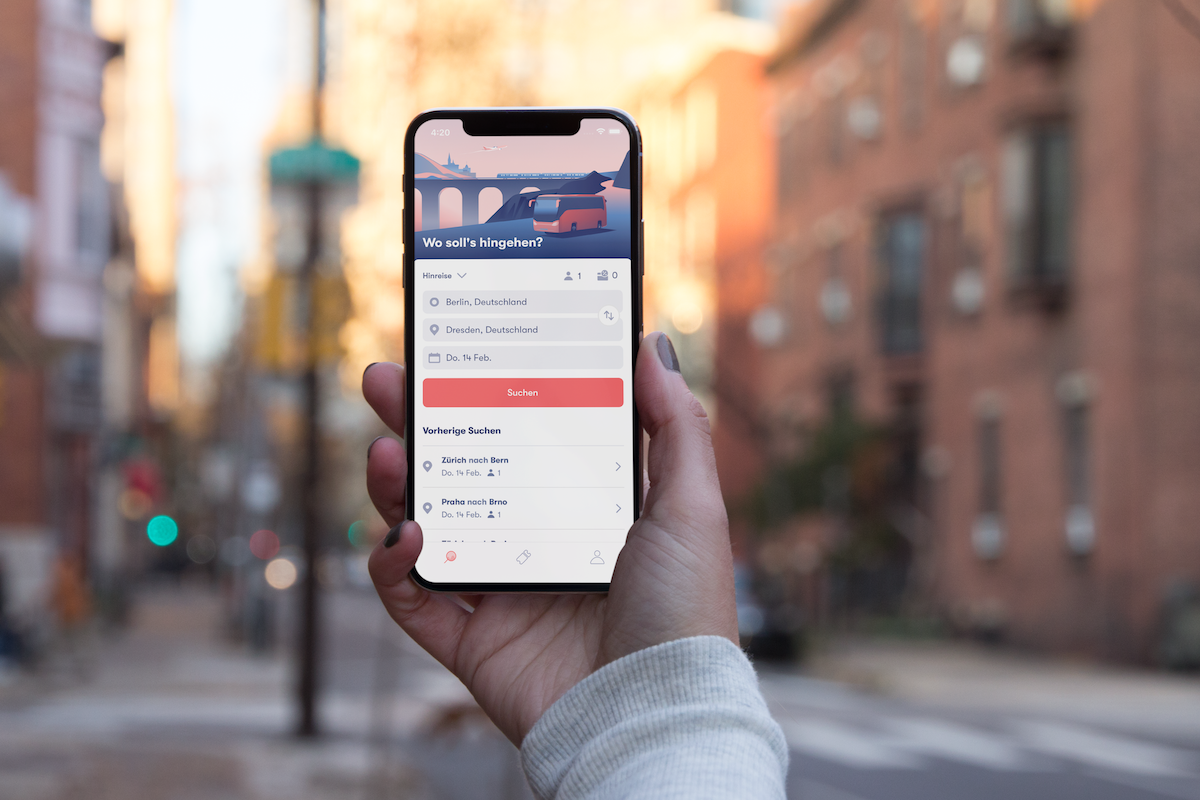The return of business travel has seen a few false dawns over the course of the pandemic. The downtime has offered us — and the travel industry — a unique opportunity to reevaluate how we can get back to business and leisure travel in a more sustainable way.
But with a vaccine in sight and travel companies itching to resume operations, what will the future of business travel look like for travellers, organisations and the industry in 2021?
Remote working means travelling more
As we slowly resume business travel, an increase in remote work will mean travelling for face-to-face meetings with team members and clients is more important than ever.
As remote teams spread across the globe, regular offsites and retreats can fuel better communication and collaboration. “The ways in which people speak and hearing how language is communicated is so critical,” Natasha Lytton head of brand, marketing and portfolio support at Seedcamp said in a recent Sifted Talk about maintaining company culture remotely.
The ways in which people speak and hearing how language is communicated is so critical.
In a report from global business travel platform TripActions, Job van Der Voort, founder of Remote, a startup that simplifies how companies employ global talent, said: “The primary way you build culture is by forging connections between people. You have to be very intentional about that however it happens. Business travel and meeting up in person together is a really, really great part of building culture.”
Companies should prepare for an increase in company-wide meetups, as well as investing more in trips to meet up with customers. A report from McKinsey in August 2020 says that while business travel will return in phases, “travel for sales and client-related meetings is most likely to be among the first to return as domestic travel resumes and more travel is permitted.”
A decentralised and globally distributed workforce also means group travel will get more complicated, which most tools aren’t equipped to handle. For example, TripActions’ centralised booking platform captures all employee travel data in one place, lets companies organise and book travel from multiple origins and keeps messy expenses organised.
The rise of corporate nomads
The pandemic has changed the very meaning of "business travel” to accommodate for longer term trips and corporate nomadism. Post-pandemic, professionals will increasingly travel to relocate, as their jobs are no longer tied to a physical location.
This will mean huge competition in the rapidly-expanding mid to long-term rental market. European startups like Czech-based Flatio and Spanish startup Ukio see remote monthly housing as a benefit companies should be offering employees.
“For employees, the value proposition is clear — the ability to experience a new city promotes professional development and personal growth. With the normalisation of remote work over the past year, the need and expectation for this benefit will only grow over time,” Stanley Fourteau, Ukio’s CEO and cofounder says. “The growing trend of people working in new cities (not working from their existing home) will increase demand for employers to provide national and international remote housing opportunities as an employee benefit.”
Governments are jumping on board, too. Traditional tourist destinations like Barbados and Greece are trying to tempt travellers by offering discounted working visas, and the Portuguese island of Madeira is opening Europe’s first digital nomad village.
Health and safety as the number one priority
If 2020 has taught us anything, it’s that global health emergencies can escalate quickly and borders can shut overnight. As business travel slowly resumes, those that do opt to travel will do so with a focus on health and safety, which means minimising risk through duty of care.
Companies have a legal and moral obligation to make sure their employees stay safe while working. HR and risk professionals will play an increasingly critical role in ensuring emergency plans are in place.
First and foremost, companies need to know where their employees are in the world. Tools like TripActions’ live traveller map use real-time data to track where employees are, as well as how to reach them at any given moment. TripActions also has a Travel Recovery Tool which helps businesses monitor global travel risks, like natural disasters, health crises and transportation strikes, and ensures 24/7 access to live travel agents who can help get employees back home quickly and safely.
Ultimately, business travel will be about trust as much as it’s about emergency planning — trust that the people you’re meeting with are taking appropriate precautions (just one in four people aged 25-54 would be happy to shake hands before a meeting, according to a report published by Business Traveller in September 2020); trust in employers to have suitable duty-of-care policies should you fall ill and trust in airlines and hotels to keep rooms sanitised.
It also means a future where health certificates — or proof of vaccination — will likely become as important as a passport, to reduce quarantine times and reopen travel routes. For instance, The World Health Organisation is working with Estonia on digital vaccination certificates, which could mean an even quicker return to business travel and tourism.
Companies have a legal and moral obligation to make sure their employees stay safe while working.
Travel itself will look very different
The pandemic offers a unique opportunity for downtime, allowing usually busy ports of transit to reassess their operations, and step into the future.
For travel hubs such as airports, this could mean reimagining the entire travel experience, as well as future-proofing travel against future pandemics. Speaking to the World Economic Forum, Corporación América Airports CEO Martin Eurnekian suggested facial recognition software and automated screening systems could drastically cut check-in and boarding times, while also helping to maintain social distancing.
This month, Amsterdam’s Schiphol Airport has started trialling autonomous baggage tractors, and back in July, Norwegian airline firm Avinor rolled out their end-to-end touchless airport programme. Visitors travelling through any of Norway’s airports are able to check in, drop off their bags, pass through security and board the aircraft without any contact with other people or machines.
Sustainable mobility solutions, from escooters to ride-sharing, will also increasingly change how we travel — both for getting to our destination, and how business travellers will move around once they get there.
Zoom fatigue means face-to-face still has a place
Video conferencing technology like Zoom, Microsoft Teams and Google Hangouts have enabled businesses to continue operating during the pandemic, but will they kill off business travel altogether?
The short answer is: no. A survey by Globetrender showed that 76% of frequent flyers believe that being face-to-face with clients is better than video conferencing for sales meetings and pitches. The reality is human interaction is a key element to partnership and success. The majority of businesses recognise this and are eager to begin enabling their employees to travel, with new precautions and safety measures in place.
76% of frequent flyers believe that being face-to-face with clients is better than video conferencing.
What we will see is a continued need for employees to meet face-to-face with teammates, customers and partners to be competitive and operate effectively. At the same time, Zoom fatigue means many businesspeople will relish the chance to resume in-person meetings — providing appropriate precautions are taken when it’s safe to do so.
Join TripActions for Destinations Europe, a Virtual Travel & Expense Summit on March 23rd, 2021. Hear from experts on how to refocus your travel programme on duty of care, cost control and sustainability.
TripActions enables you to build, manage and scale a world-class corporate T&E management program with ease. Give employees the best booking experience with unrivalled inventory, powerful personalisation and 24/7 global travel agents paired with frictionless expense management so they can focus on being there, not getting there.



